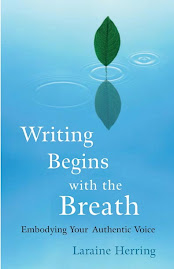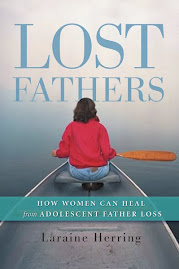
"If you're really listening, if you're awake to the poignant beauty of the
world, your heart breaks regularly. In fact, your heart is made to break; its
purpose is to burst open again and again so that it can hold ever-more
wonders."
—Andrew Harvey, The Return of the Mother
Most of my creative writing classes are hitting the big R word in the next few weeks. Revision. Dum, dum, dum, dum ... DUM!!! Some students handle this better than others, but students who are new to creative writing, and new to writing as a process rather than a product, often have a very difficult time handling the idea and stages of revision. You all know the cliche -- real writers revise. It's one of those cliches that's a cliche because it's true. But revision in creative writing isn't like it was for your English classes. You don't just go in and do what the teacher said to do in her red ink and call it a day. That's lazy at its best, disrespectful to your work at its worst.
I ask a lot of my students, and I ask a lot of myself as an instructor and a writer. I know I'm asking them to lay it all on the line and then chuck it and lay it on the line again, and again, and again. I understand the resistance to it. I understand the need to feel like you can be "done" with something. But in truth, you're not ever done with the writing process. There's a point where you cut it off, but we can continue to go deeper with every draft.
Nothing begins to break down the sneaky edges of the ego like the writing process. Let it happen. Let yourself be opened over and over again, as far and as deep and as wide as you can go. Many of my students start off as closed as a fist. They are afraid. They've been hurt. They've been "red inked" to death in English classes in school. They want to please (but whom, they're not quite sure). They want to write (though perhaps they don't yet know why). There's something inside them that keeps calling them to the page, and it's that something, which manifests differently for every writer, where we need to make and maintain contact.
Here are some thoughts on revision that may be helpful.
1) Accept that you cannot see your work clearly. All writers have "readers" -- friends in a writing group, colleagues, agents, etc -- we need them like we need oxygen. The more you write and the more you read, the better you'll be able to see your work, but there will always be blind spots because you're looking at it through your own beautifully tinted eyeballs.
2) Accept the necessary detachment from the work. Just because you wrote it doesn't make it precious or priceless or perfect. You just wrote it. Let that be enough. Over time and practice, you may come to believe that the fact that you wrote it really is enough, and that is far more than you thought it could be. No good, no bad, just what it is. Everything you write -- everything -- brings you closer to the next place. No words are wasted. No attempts are worthless. You wrote it. It is that, and nothing more. Yet, see how that is everything?
3) Think of early drafts (like, say, the first five or so) as scattering seeds. You throw a handful of seeds into a hole in the earth and you wait. You don't really know what you put in the ground yet. You don't know what will be able to grow compatibly, or what will have to be pruned out and planted somewhere else. You've got to let things grow a little bit before you can see what's up.
4) Hard part here: WAIT. Imagine some buffed up cop saying (or maybe Johnny Depp), "Back away from the manuscript, ma'am. Just back away now!" To go back to my seed analogy, what happens after you throw the seeds into the earth? You've got to water them and then wait. Sometimes we have to wait two whole seasons to see what pops out of the ground. Yeah, really, writing is like that. I'm currently going back to a project I wrote seven years ago. The time for it is now. Yeah, really, writing is like that.
5) After you wait awhile, read it again. Not with an eye for tearing it apart, but with an ear for listening with compassion to what you were trying to say. One of my favorite teachers told me to use "teabag listening." He was talking about letting the tea steep for awhile and then over time, listening (tasting) to what flavors surfaced. Be gentle here. Don't be manic with your work or with yourself. Let your work speak to you while you turn off your critic/editor/shame-based voice (whatever your baggage is from other classes or groups or family) and nod and say thank you. Don't listen to your work with a knife at its throat. How much do you think it'll actually say to you that way?
6) Now, if you've listened well and authentically, you might now notice that you threw a seed for a pine tree in the same hole as a seed for a strawberry plant and a seed for a sunflower. What are the odds all three arcs of a story can co-exist in the same hole in the ground? Pretty slim. So which one is fighting for survival? Which one desperately wants you to hear it? I don't know the answer for any individual, but I know a key to a writer finding it out is to ask this question: which one did I not know was there? You might do well to remember that the plant (yes, I'm going to extend this metaphor all the way through) which is bullying the other plants may not be the one you really need to write about. The loudest isn't always the most powerful.
7) Start again. Yes. Again. Dig a new hole (clean piece of paper, empty computer file) and scatter a different handful of seeds again. Maybe this time 75% of them are the sunflower seeds and only a few are oak trees or eggplants. Wait some more. Maybe you'll wait as long as the last time, maybe not. But wait. Let things settle and integrate and assemble without you constantly hacking at the roots.
8) What blooms now?
Get the picture? All throughout this process, you're reading. You're still writing. There's no rule that says thou must only work on one thing at a time. You're reading, and did I mention, you're reading?
Revision teaches you a lot about yourself. I encourage you as you begin your revisions to observe your own behavior. Observe it with the same non-knife-wielding compassion that you are listening to your work. Notice something, and say, "Hmmm. Look at that." If it's not working for you, stop doing it. But don't shame yourself about it. We're all beautifully flawed. As Leonard Cohen says, "It is the crack that lets the light in." If you're tearing yourself up inside and causing suffering to yourself, well, stop. Ask yourself why you're causing yourself pain. The answer might surprise you. Over time, you'll clear out the gutwrenching resistances of revision, and you'll find the absolute freedom and joy in re-envisioning a piece of writing. You'll know that you can toss those pages because more will come. You'll know that nothing is wasted. But it takes time to know these things in your body, and if you're doing this for the first time in your life, expect the suffering. I offer these things to you in the hopes that you can shorten your period of suffering and move more quickly into the freedom of the process. We as writers can resist this stage or we can embrace it. The act itself (the revision) is neutral. Our reaction to it shapes everything.
Revision teaches a lot, indeed. But the biggest thing it will teach you is: Are you a writer? And if it turns out you're not, no big deal. There are lots of glorious things to do in this world that don't involve so much solitude and ink. Approach everything with openness. Where there's resistance, there's struggle. Where there's struggle, there's conflict. Go back to that voice I mentioned earlier that's compelling you to put something on paper. What does it have to tell you? My guess is, it's that you're a writer.











1 comment:
Revision doesn't seem so scary when it's broken down like this. Thanks Miss Laraine.
Post a Comment